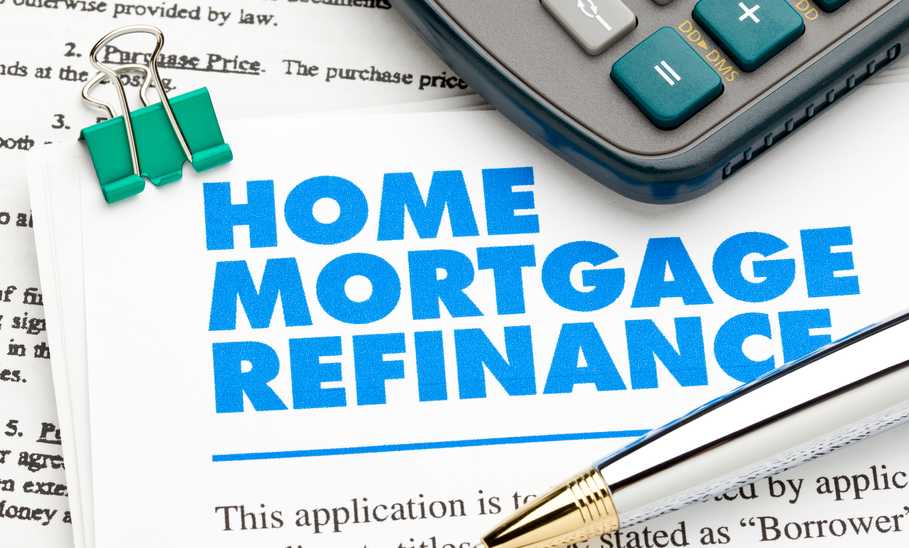When to Refinance a Mortgage: Find the Best Time Today

Our evaluations and opinions are not influenced by our advertising relationships, but we may earn a commission from our partners’ links. This content is created by TIME Stamped, under TIME’s direction and produced in accordance with TIME’s editorial guidelines and overseen by TIME’s editorial staff. Learn more about it.
There are a lot of reasons why people decide to refinance a mortgage. You may want to take advantage of lower interest rates, which can save you thousands of dollars. Or, you might want to access some of the equity you’ve built up in your home for a big project. Regardless, it’s essential to understand if refinancing your mortgage will be a good idea for your situation.
Keep reading as we explore why people refinance, when refinancing might be a bad idea, and other considerations.
Here are a few reasons why refinancing can make sense.
People often refinance to secure a lower mortgage rate, which can significantly reduce your monthly mortgage payment. This may be an option if your existing rate is higher than current rates, especially if your credit score has improved significantly since you first took out a mortgage.
However, many experts only recommend refinancing if the new interest rate is at least 0.50% lower than your current rate to make it worthwhile.
If you used a down payment of less than 20%, you’re likely paying mortgage insurance on your loan. If the equity has increased since you purchased the home, you may be able to eliminate mortgage insurance by refinancing. However, before doing so, it’s important to understand when mortgage insurance would be eliminated automatically.
With housing prices rising nationwide, many homeowners have a significant amount of built-up equity. If you have large upcoming expenses, you could do a cash-out refinance and use that equity to pay for the expenses.
Possible expenses could be any of the following:
However, many lenders require at least 20% equity before considering refinancing. And taking this step will extend the life of your loan, and can cost more long-term.
When you initially took out your mortgage, you may have chosen an adjustable-rate mortgage (ARM) because it offered a lower interest rate. However, once the fixed rate portion of the loan ended, the adjustable interest may have made the loan unaffordable. Refinancing to a fixed-rate mortgage can give you consistent monthly payments.
If you purchased your home with a spouse but have since divorced, you’ll likely want them removed from the mortgage (if you’re staying in the house). The only way to accomplish this is to qualify for a mortgage refinance based on your own finances.
A similar process is required if you get married and want to add your spouse to your mortgage loan, although in that case, you can qualify using the strength of both borrowers.
Let’s explore some scenarios when refinancing might be a bad idea.
Are you considering making a large purchase, such as a dream vacation or backyard hot tub, but lack the savings? Refinancing to pay for these expenses is a bad idea. Instead, regularly set aside money to save for the expense without borrowing. You’ll thank yourself for it over the long run.
If your credit score has decreased since you took out your mortgage, the odds are slim that you’ll qualify for a lower interest rate. Because lower credit scores usually mean higher interest rates, improve your credit score before attempting to refinance.
The sooner you pay off your mortgage, the less interest you’ll pay on your loan. You may want to rethink the decision if you’ve already paid off a significant portion of your mortgage and are considering refinancing to extend your mortgage amortization. While you can reduce your monthly payment significantly, you’ll pay a lot more interest over time.
Any time you refinance your mortgage, there are costs involved. Lender and third-party fees can add up to thousands of dollars. If you’re only going to stay in the home for a few more years, any amount you save may not be worth the cost of refinancing.
When you refinance a mortgage, you’re basically replacing your original mortgage with a new one—and the process will look much like the first time you applied. The following information will help you determine whether refinancing is the best move for you.
While this might seem surprising, roughly 25% of homeowners don’t know their loan's interest rate. However, this information is critical before you start refinancing your mortgage, so you can calculate the potential savings from a lower rate.
Any time you refinance your mortgage, closing costs will be involved. These can include origination fees, lawyer fees, appraisal fees, title fees, and more.
Are you planning on moving soon, or is this your forever home? Knowing this will help you calculate the cost savings vs. the closing fees to determine whether refinancing is worth it. For example, let’s assume you’ll save $200 a month by refinancing, but closing costs are $4,800. This means you’ll need to stay in the home for two years just to offset the refinancing cost.
When you take on a mortgage, most of the interest is paid early on, when your balance is the highest. That means refinancing early is also going to offer the most savings. If you only have a few years left on your mortgage, you probably won’t save enough interest to make refinancing worthwhile.
Refinancing may not be your only—or best—option, depending on your goals. For example, consider a home equity loan or line of credit (HELOC) instead for a home improvement project. Or consider making extra monthly principal payments to pay off your loan sooner and save more on interest.
Refinancing a mortgage can provide you with significant savings over the life of your loan. However, it’s critical that you understand the costs involved. On average, closing costs will be anywhere from 3% to 6% of the loan amount. That means if you’re borrowing $300,000 for your home, the closing costs could be between $9,000 and $18,000.
While this might seem significant, most lenders will allow you to pay it upfront or include it in the loan balance (although the latter means you’ll accrue additional interest).
The amount you’ll save by refinancing will depend on several factors, including your current loan balance and how much your interest rate would be lowered.
For example, if you have $300,000 left on your mortgage and can lower your interest rate from 5% to 4%, you’d save about $200 monthly. You can use a mortgage refinance calculator to help you understand your exact savings.
If you can reduce the overall cost of your loan, then refinancing might be worth it. However, always consider your break-even point—the time it will take for the monthly savings to justify the closing costs. To calculate, divide your closing costs by your monthly savings. For example, if your closing costs are $9,000 and your monthly savings are $215, your breakeven point would be almost 42 months.
If your goal is to reduce your monthly payment, change your loan term, or eliminate mortgage insurance, then refinancing will be your only option. However, if you just need access to cash, there are a couple of alternatives to consider.
Home equity loans provide homeowners with a lump sum of cash from the equity in their homes. However, these are considered a second mortgage, which means you’ll have an additional monthly payment.
A home equity line of credit (HELOC) differs slightly from a home equity loan. Instead of a lump sum payment, you’ll have a line of credit you can draw on when you need the money. Most draw periods last for ten years; during this time, you’ll only make interest payments on the total draw amount. Once that’s finished, the repayment period begins.
Refinancing can be a great way to reach your financial goals, from reducing a monthly payment to using equity to complete a home improvement project. However, make sure the cost of refinancing is worth the benefits you receive.
There is no rule for how long you must wait before refinancing your mortgage after purchasing a home. Some lenders will require a wait period, but that’s up to each financial institution. However, there is one hard rule: You must wait at least six months after your last closing date to complete a cash-out refinance.
An ideal time to refinance your mortgage is when interest rates drop. Locking in a lower interest rate can help you reduce your monthly payment and the overall cost of borrowing money.
When you apply to refinance your mortgage, your lender will conduct a hard credit inquiry. This will lower your credit score a few points, but it will typically bounce back within a few months.
The information presented here is created by TIME Stamped and overseen by TIME editorial staff. To learn more, see our About Us page.



